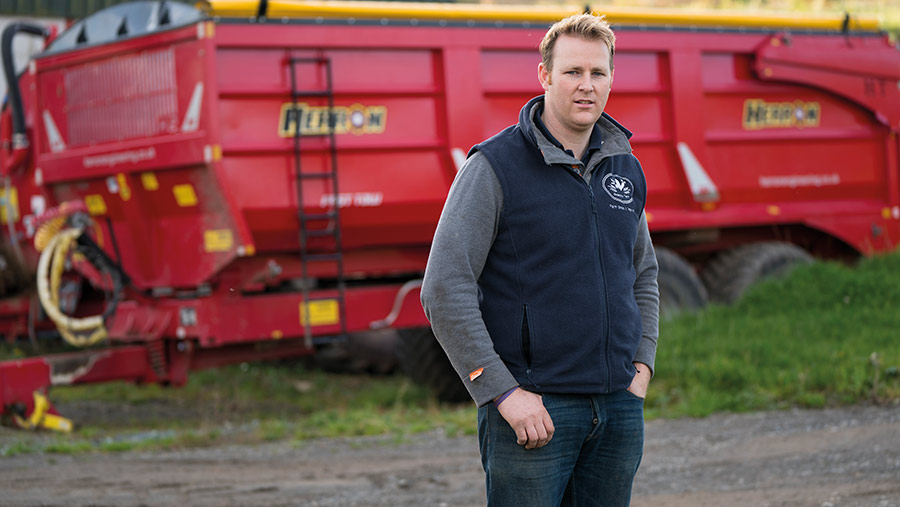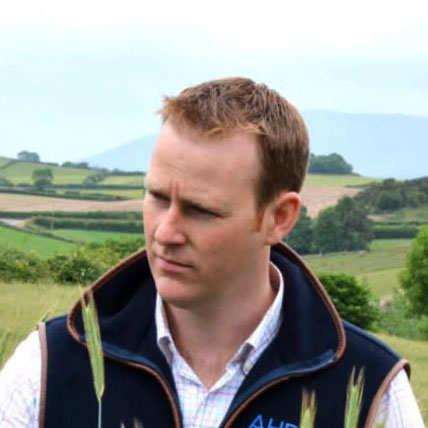Farmer Focus: Battling the huge rise in cost of production
 Richard Orr © Steffan Hill
Richard Orr © Steffan Hill I’ll take this opportunity to wish everyone a happy new year and hope you have a prosperous 2023.
Christmas is over and the last-minute rush from customers was more evident than normal, with people slower to order and holding off until the last minute.
See also: How Danish grower cut pesticide use and improved soil health
It was a different Christmas, with a clear increase in taking the cheap discount supermarket orders over local independent businesses – this is to be expected with the cost-of-living crisis.
Last year was the toughest I’ve had, for various reasons, and 2023 won’t start any easier.
However, if we take the positives from 2022, it was the easiest harvest I’ve completed out of the 15 I’ve managed on the farm.
How many more years will it be before we can tip trailer loads of wheat straight into the shed in the Northern Ireland summer, considering in most years August is the wettest month of the year?
Costs of inputs were up massively, but over the past five years and, recently, with the help of the AHDB, we have managed to cut about £140/ha through improved attention to detail.
It was only a few percent in each area, but it has all added up and given us more room to absorb the higher costs.
Varieties such as Extase and Graham have halved our fungicide costs, reducing cultivations has lowered fuel use and switching to liquid fertiliser has reduced the amount we use by 20%, mainly through a better uptake of the last application in a dry May.
GPS guidance has boosted accuracy of fungicide applications and cut fertiliser use too.
I’ve only seen the savings myself from the accurate AHDB Farmbench analysis we get each year, but the input rises this year were highlighted by our spreadsheet, showing how we had got the costs down previously.
Mind you, that task continues to get more difficult, with no certainty on how we source good seed varieties and new chemicals with the ongoing Northern Ireland protocol issues.
This is also an even bigger problem for our potato enterprise, as registered seed is fast running out.
To end on a positive, the cold snap we had in mid-December has been ideal in slowing down our winter wheat and killing off any pests and diseases.
This will, hopefully, help it through to March unaided.


